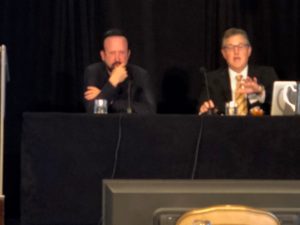Blurred Lines and Appellate Preservation
Failure to make a Rule 50(a) Motion
In Federal Court, the rule that covers judgment as a matter of law (also sometimes called judgment notwithstanding the verdict or JNOV from the Latin judgment non obstante veredicto) requires that in a jury trial the Defendant must make a motion at the close of plaintiff’s evidence (Rule 50(a)) and then renew that motion at the end of the case (Rule 50(b)) in order to preserve a challenge to the sufficiency of the evidence. The Defendants were left with arguing that “a colloquy between their counsel and the district court regarding jury instructions and verdict forms qualifies as an “ambiguous or inartfully made†Rule 50(a) motion,” and should suffice for preservation purposes, but but the Court found that colloquy fell “far short” of even an inartful motion, and found sufficiency of the evidence unpreserved. Ouch. Williams v. Gaye, 885 F. 3d 1150, n.21 (9th Cir. 2018). In Florida, the equivalent requirement is for a motion for directed verdict.
Failure to Object to Jury’s Verdict
Defendant’s waived their objection to an alleged inconsistency in the jury’s verdict by failing to object before the jury was discharged. And this was not a controversial point — it was a pretty black letter rule that the court mentioned with citation to two older cases and moved on quickly. That objection must, must be made before the jury is discharged.
It can be very hard in the heat of battle — and trial can be a battle — to remember every possible preservation issue. That’s why we recommend you have an appellate specialist on your trial team. What you don’t want is to blur the lines of preservation.
Thank you to the panelists at the Florida Bar Business Law Section’s 9th Annual Intellectual Property Symposium for their fascinating presentations!



Leave a Reply
Want to join the discussion?Feel free to contribute!